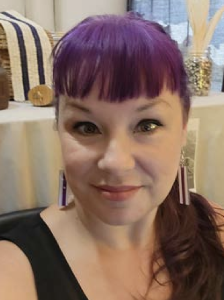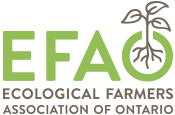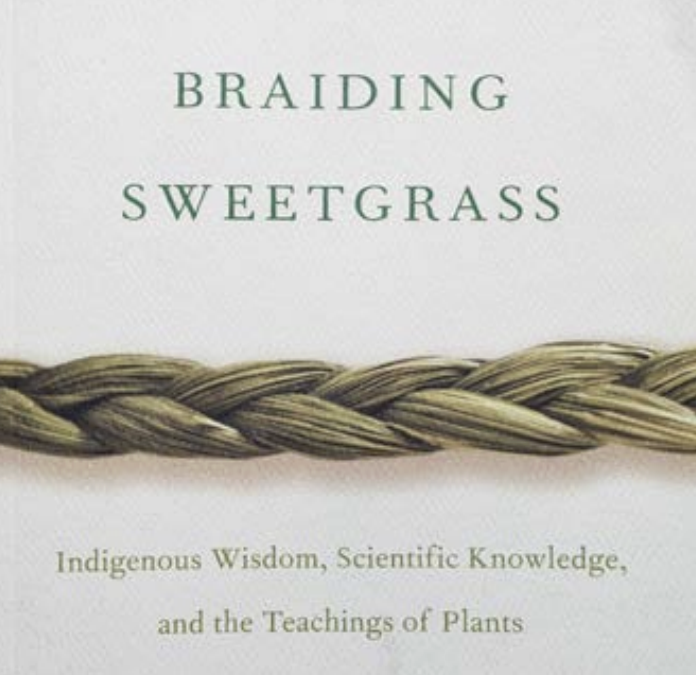by Celeste Smith
Spring 2022
I have read Braiding Sweetgrass by Dr. Robin Wall Kimmerer more times than I can count. The first time I read it so quickly, I had to reread it immediately because I could not wait to relive the beautiful stories of the author’s Indigenous teachings, intertwined with the scientific principles of her work as a university trained scientist. It was a situation I was intimately familiar with from my own life experience and I immediately felt a kinship with this Potawatomi Plant Sister who lived on my People’s Traditional lands of New York State, (Haudenosaunee Territory).
The most dog-eared section of my copy of her book is the chapter on the “Honorable Harvest,” her philosophical breakdown of the Indigenous rules of reciprocity. She begins by sharing a story about harvesting spring leeks in the forest by her home. She asks the forest permission to harvest the bulbs for her salad and her first dig in the ground reveals a withered husk. This small, malformed bulb tells her that the patch is not healthy and it is time to move on. So, instead of digging more, she leaves the plant where she found it and goes home. This lesson about listening to the plants, and to “take only what is given (or offered)” is a masterclass in Indigenous stewardship.
I have also been taught to offer thanks (tobacco) and to ask humbly for what I need and if the forest offers it, I will find what I am looking for. Eastern Woodland stories tell us that if we take without asking or showing gratitude, the forest will not provide for us in the future, or even worse, we will become like a Wendigo: the monster of overconsumption. It is said that the Wendigo eats and eats but can never be satisfied, and this constant hunger is his curse. It is of course only a parable, but it is one that many Indigenous cultures consider a sacred one, and the warning winds throughout all of the teachings we learn. Western Society has not learned to “ask permission” or to “give thanks,” which is why many Elders I have spoken to think the earth is in big trouble.
Reciprocity is not a lesson that is taught in a capitalist world, which is why so many folks are inspired by this book. They simply did not know there was another way to live.
The lessons of Indigenous stewardship are summed up by Robin in a short list:
- Know the ways of the ones who take care of you, so that you may take care of them
- Introduce yourself
- Ask permission – listen to the answer
- Never take the first or last
- Take only what you need
- Take only what is given
- Never take more than half
- Leave some for others
- Minimize harm while harvesting
- Use it respectfully, and never waste that gift
- Share and give thanks for what you have been given
- Give a gift in return
- Sustain the ones that sustain you and the earth will last forever
This list is not exhaustive, but I would agree with her that it is a good start. The thing about Indigenous teachings is they are fluid and nothing is really spoken of in absolutes.
The chapter ends with an experience of finding wild leeks at the grocery store that becomes a call to action on the dangers of commoditization. The horror of Robin’s discovery is palatable. To find something so wild in a plastic container is a sign, and it is not a good one. I remember my own horror at seeing wild leeks by the dozens for sale online and how a debate on overharvesting created a rift in a wild harvest group I belong to. I distinctly remember the sense of injustice and genuine anger I felt with each post that defended the exploitation as “a right of discovery.” I told the group again and again that the wild spaces would react to their greed in some way but my warnings were dismissed and I was labeled rude and banned from the group.
When I teach Traditional Indigenous Knowledge (TEK) at the college level, the first activity I do is a comparative analysis between Western Science and Indigenous Science. When I put the two methods side by side on the white board, it is painfully obvious that there is a fundamental difference in philosophy. To sum up: Indigenous Science is communal, subjective, oral and Interconnected, while Western Science is Individual, objective, written, and isolated. I make sure to mention that the two are separate but equal, and that Indigenous views are just as important as Western ones on the topic. By this time most of my students sheepishly express the fact that they didn’t even know Indigenous Science existed, let alone that it could be compared to what they have been taught their entire lives “as real science”. This is when we discuss Western Science’s supremacy complex. The word supremacy makes some students uncomfortable, but what else would you call a scientific method that does not allow for any other possibilities other than its own, I ask? There is almost always a slow, embarrassed agreement.
It has never even occurred to most of my students that Indigenous people even have science. Robin brings life to folks like me who see the wide gulf between our worldviews and see a possible link between them. She illuminates the bridges and the valleys with such poetry that it seems like there can be hope after all. This is where the genius of Kimmerer’s writing lies, because her storytelling is exactly the way Indigenous people pass down knowledge to each other. The oral histories of our people are just as she describes them, as told in the language of nature, a language not generally understood by modern folks, because they have not been taught to listen.
You can hear it in the gentle lilt of her voice, in her stories about the proud Tree Nations, the torrid relationship between moss and the understories of trees and complexities of how to give thanks to wild leeks.
This language is Indigenous Science, and it is a language our Elders urgently tell us we all must learn.
 Celeste Smith (she/her) is Oneida from Six Nations of the Grand River Territory. She is a seed steward, traditional agriculturalist and former professor of Traditional Ecological Knowledge at Niagara College. “I have often said that I have been taught that there are no experts, but when one knows about a subject being discussed, one stands up and offers that knowledge and then sits down. I offer my small knowledge in this way.”
Celeste Smith (she/her) is Oneida from Six Nations of the Grand River Territory. She is a seed steward, traditional agriculturalist and former professor of Traditional Ecological Knowledge at Niagara College. “I have often said that I have been taught that there are no experts, but when one knows about a subject being discussed, one stands up and offers that knowledge and then sits down. I offer my small knowledge in this way.”

